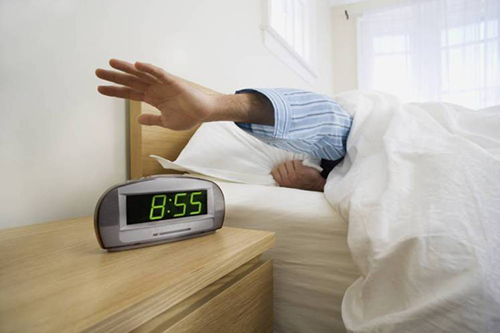Almost everyone is interested in boosting their brain power. Whether you are a student who wants to get better grades in school, a business professional or someone who wants to keep your mind sharp, here is a list of 20 things you can do right now to improve your mental functioning.
Meditate
Among the many benefits of meditation are the reduction of stress, increased concentration, and increased levels of brain functionality. Mediation achieves this by activating the prefrontal cortex, which is the area of the brain that helps with learning, cognition, and performance. A regular meditation practice can help you get a handle on emotions that increase stress and agitation.
According to Sara Lazar, a researcher at Harvard University, meditation can slow the aging process by making the telomeres on your chromosomes longer. While it may not lengthen your total life, it can result in, quite literally, having more brain cells for much longer. If you want to learn meditation you might want to try a meditation app like Headspace, or Talkspace, which is a therapy app.

Draw A Picture
For centuries, humanity has recognized that the arts make our lives better. Engaging in some sort of creative expression, such as drawing, can help boost brain function. Drawing helps stimulate the right hemisphere of the brain and provides stress relief. It doesn’t really matter what kind of art. Whether you are sketching a landscape or indulging in a bit of adult coloring, the connection of hand to the brain can help us engage our creativity and widen our perceptions.
Write
Like drawing, the practice of writing can help bolster imagination and creativity. It can also stimulate memory and cognition. The act of putting pen to paper can be both relaxing and help stimulate your brain. According to Stanislas Dehaene of the College de France in Paris, there seems to be a connection between the written word and brain stimulation. “Learning is made easier,” he said. Many college professors agree and insist that students take notes by hand rather than on a computer. Taking notes throughout the day also helps you to remember things and map out ideas as they come up.
Exercise
You don’t have to be an athlete to derive benefit from regular exercise. Studies have shown that aerobic exercise through playing a sport, walking, swimming, or other exercise in the long term creates a larger basal ganglia, which helps increase your attention span. Physical activity can also create more restful and healthy sleep which can further help to reduce stress.

Learn A New Language
Being able to speak more than one language really does give your brain a workout. At Northwestern University, researchers found that learning another language helps to fine-tune the brain. In a project led by Professor Nina Kraus, language learning can increase cognition through sound, in “an auditory system that is highly efficient, flexible and focused in its automatic sound processing, especially in challenging or novel listening conditions,” she said in an interview that appeared on the BBC website.
Do Crossword Puzzles & Brain Games
Studies have shown that those who regularly do crossword puzzles can increase not only your vocabulary but also memory and other forms of brain cognition. In a study conducted in 2014 by the National Institute of Health (NIH), such cognitive brain training can slow effects of aging on the brain by as much as 10 years. Brain games such as doing Sudoku puzzles, playing bingo, card games, memory games, and games involving patterns are a great place to start.

Learn to play a musical instrument
Scientists in Switzerland have found that those who play a musical instrument helps improve motor skills, hearing, and memory. Even in the elderly, after four or five months of practice, there was an increased ability of concentration, planning and in social interaction with others. While playing an instrument, the areas of the brain which control these areas become more active. Playing an instrument can even make it easier to learn a foreign language.

Avoid Junk Food
There is a direct link between what we eat and brain function. According to neurologist Dr. Maryanhthu Do of Advocate Medical Center in Oaklawn, Illinois, foods containing added sugar, fats, and preservatives can cause poor cognitive function and increase brain decline. Preservatives and partially hydrogenated oils that are found in nutritionally deficient ‘junk foods’, have been shown to affect cognitive function and memory as well as a potentially increased risk the development of dementia or Alzheimer’s later in life.
Eat a Healthy Diet
The food we eat not only fuels our bodies but our brains as well. Taking in food with complex carbohydrates, antioxidants and healthy fats is important. Whole grains and oily fish such as salmon can help keep our brains and our bodies well lubricated and functioning optimally. Dark berries such as blueberries, blackberries, and blackcurrants are high in antioxidants and Vitamin C and can delay short-term memory loss. Red peppers, tomatoes, broccoli, and avocados can keep brains sharp by providing the kind of nutrients that our brains need to function.

Incorporate Herbs & Supplements into your diet
Herbs and nutritional supplements can further help nourish the mind and stave off the effects of aging.According to naturopathic doctor and author Linda Rector Page, Korean and American Ginseng, Green Tea, Ginkgo biloba, Gotu Kola, Turmeric, can help with brain health. Some of these contain vasodilators that increase oxygen to the brain to improve concentration. This can help reduce stress and mental burnout.
Use Aromatherapy
The air that we breathe is important for both our bodies and our brains. Humans have learned over the centuries that the power of scent also can affect brain function. By inhaling the scent of Rosemary, Lemon, or Orange, the brain can be invigorated and energized. Lavender, Sandalwood, and Frankincense can help slow the synapses in the brain and aid in concentration or help us to relax. Consider putting an essential oil diffuser to subtly release the scent of the oils at your desk at work or in the living areas of your home.

Drink Red Wine
For centuries, the French have sworn by the health benefits that are derived from red wine. Now it seems that, according to research conducted in 2016 by a team at Northumbria University, researchers have found that the compound resveratrol is responsible for these effects. Resveratrol is found in abundance in red wine, can improve mood and brain function. Red wine also contains high levels of antioxidants which can help protect the brain and improve heart health.
Drink Coffee
Beyond giving our brains a morning jump-start or helping to keep us awake during a long day, drinking the occasional cup of coffee can increase your brain function. Coffee has antioxidants which can increase both oxygen and blood flow to the brain. It also blocks the brain chemical adenosine which causes drowsiness when the brain is overworked. Coffee helps clarify the thoughts and can make it easier to concentrate, remember things, and stimulate more ideas.
Set Goals
Believe it or not, your brain likes it when you set goals for yourself. In an article which appeared in Entrepreneur Magazine, Monica Meheta writes that whenever we set a goal and achieve it, each success creates the release of dopamine in the brain. The effect is increased pleasure and motivation to achieve even more. The key is to start out with small, achievable goals so you can build on each of your successes. New York-based psychologist Dr. Frank Murtha suggests, “Your vision is your destination, and small manageable goals are the motor that will get you there”.

Listen To Classical Music
Like visual art, music stimulates the right hemisphere of the brain as well as the emotions. Music has been credited with helping to boost memory function and is being used as therapy for those suffering from Alzheimer’s disease. In a study conducted in 2015, researchers from Sapienza University in Rome found that when listening to music by Mozart neuronal cortical circuits related to cognitive function were stimulated. This caused a marked improvement in memory, cognition and overall problem solving.
Disable your snooze alarm
For many people who don’t get enough sleep, the snooze button can seem like a heavenly indulgence. However, according to motivational speaker, Mel Robbins, the snooze button is something you should get rid of entirely. When you hit the snooze button it creates a state in your brain called sleep inertia. Because a sleep cycle lasts between 90 -110 minutes, going back into the sleep state can create brain fog that can take up to four hours to get yourself out of! The best strategy for your brain is to make sure you get between 7 -8 hours of sleep a night so you won’t even need that old snooze alarm.

Stop multitasking
The idea of multitasking is a myth. Our brains are designed to concentrate on one task at a time rather than a bunch of tasks all at once. In an article which appeared on the Inc. magazine website. MIT neuroscientist Earl Miller says that constantly switching between tasks exacts a cognitive cost on our brains and encourages bad brain habits. UK researchers say that it can even lower the IQ and that those effects over time can be permanent. Turn off the notifications on your phone and email so that you can focus on just one task at a time.
Solve math problems without a calculator
You can give your brain a little boost every time you do mathematics without the aid of a calculator. Math educators have found that when they banned calculators from the classrooms, the ability of students to understand math concepts drastically increases. Whether it’s simple addition or subtraction or trying to work out algebra on a piece of scratch paper can boost your ability to concentrate and keep those math skills honed.
Create “top 100 lists”
Our brain loves lists! You can make a top 100 list for anything including lists of things that you’re currently grateful for, skills that you want to learn, places from around the world that you would like to visit. Jack Canfield, author of The Success Principles, suggests making a list of all of the things that you wish to achieve or learn as well as the places you want to go see and do in your life. You may also want to list all of the things that you are grateful for, too! It feels awesome when you complete one of the goals and can move on to the next one.
Read
The digital age has dramatically decreased the number of people who read. But reading a book can keep you absorbed in ways that other types of stimuli received from in front of a screen won’t do for you. Readers have an increased level of concentration, as well as increased abilities for problem solving, critical thinking and comprehension. Create a goal for yourself for the number of books you’d like to have read by the end of the year. Each new year, try to increase that number by at least 10 or more. Do this and you’re sure to be wiser and more well-read than ever before.
By giving a try to some or even all of these ideas, you are likely to not only end up smarter but healthier, too!













![Best Crochet Hooks for Beginners and Pros [2020 Update] best crochet books](https://www.awebtoknow.com/wp-content/uploads/2018/01/best-crochet-books-100x70.jpg)


